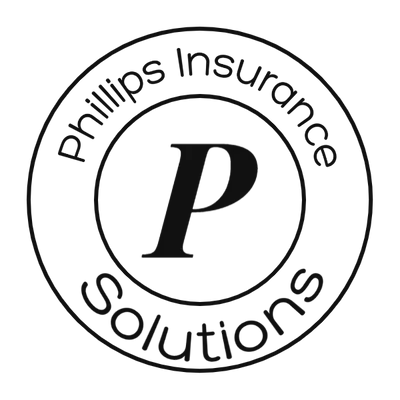Your Solution To Health & Life Insurance.
Insurance Doesn’t Have to Be Confusing
Not sure where to start with insurance? Our Learning Center breaks down health, Medicare, life, and group coverage in simple, everyday language—no jargon, just answers. Start learning today!
About Us
At Phillips Insurance Solutions, we understand that choosing the right insurance policies to protect yourself and your loved ones can be overwhelming. That's why we're dedicated to making the process easy and stress-free. We prioritize transparency and strive to educate our clients about the insurance industry. We believe in building long-term relationships with our clients by providing ongoing support and regularly reviewing their policies to ensure they remain adequately covered.

Assessing Need
One of the essential steps in finding the right insurance coverage for your needs is understanding what those needs are. That's why we take a personalized approach to each of our clients, working with them to assess their unique circumstances and tailor their insurance needs accordingly.

Building Relationships
Everyone has different insurance needs. Call us today for a personalized assessment and find out how we can help protect your hard-won assets.
Our Team

LAUREN P., Agency Owner
Starting an insurance agency was not just a business opportunity for me, it was my way of addressing a very important issue that I noticed in the industry. There were too many people buying policies without really understanding the coverage they were purchasing. This lack of education led to dissatisfaction among clients who didn't know what they were paying for until they suffered a loss and realized that their coverage was insufficient. I saw this as a major problem that needed to be addressed, and I decided to take action by starting an agency with a focus on educating clients. For me, educating clients is not just a sales tactic, it's something that I believe in strongly.
States We Service
Alabama

Health Insurance
Life Insurance
Medicare
Florida

Health Insurance
Life Insurance
Georgia

Health Insurance
Life Insurance
Medicare
Reviews
Contact Us
Send Us A Message
Phillips Insurance Solutions
678.723.1402 (call or text)
[email protected]
Hours
Mon 09:00 am – 05:00 pm
Tue 09:00 am – 05:00 pm
Wed 09:00 am – 05:00 pm
Thu 09:00 am – 05:00 pm
Fri 09:00 am – 05:00 pm
Sat Closed
Sun Closed
We Work With Companies You Can Trust
Disclaimer:
We do not offer every plan available in your area. Currently, we represent 0-10 organizations which offer 0-272 products in your area. Please contact Medicare.gov, 1-800-MEDICARE, or your local State Health Insurance Assistance Program (SHIP) to get information on all of your options.
Interest and other guarantees in an annuity are subject to the claims-paying ability and financial strength of the insurance carrier that issues the product. Annuities are long-term vehicles. Many have surrender charges over many years, and withdrawals from an annuity prior to age 59 ½ may be subject to a 10% tax penalty.
Phillips Insurance Solutions - Copyright © 2026. All Rights Reserved.






















